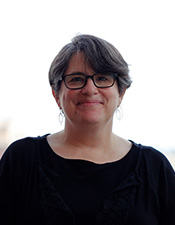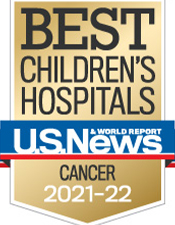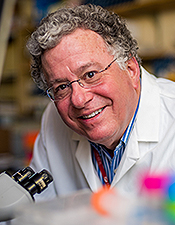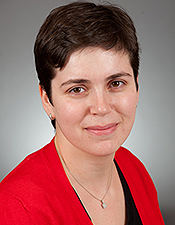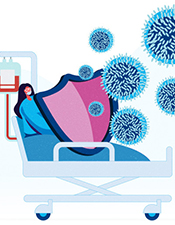The U.S. Food and Drug Administration today approved a treatment to prevent acute graft-versus-host disease (GVHD) in patients 2 years of age or older receiving a hematopoietic stem cell transplant from a matched or single-HLA-mismatched unrelated donor.
News
Displaying 21-30 of 76 results matching:
The Dana-Farber/Boston Children’s Cancer and Blood Disorders Center has launched a fully redesigned website designed to be user-friendly and intuitive.
U.S. News & World Report has named Dana-Farber/Boston Children's Cancer and Blood Disorders Center the top pediatric cancer program in New England and #2 in the nation in its 2021-22 Best Children's Hospitals report.
A. Thomas Look, MD, of Dana-Farber/Boston Children’s Cancer and Blood Disorders Center, has been awarded the 2021 Society of Memorial Sloan Kettering Prize. The award was presented to Look at the Gerstner Sloan Kettering (GSK) virtual convocation on May 19, 2021.
The grant was given to Leonard Zon, MD, of Boston Children’s Hospital who will collaborate extensively with other scientists at Boston Children’s Hospital and Dana-Farber Cancer Institute, including Scott A. Armstrong, MD, PhD; Vijay G. Sankaran, MD, PhD; Fernando Camargo, PhD; and Serine Avagyan, MD, PhD.
A report by Dana-Farber/Boston Children's researchers on the study of video conferencing was published in the journal Pediatric Blood and Cancer.
His remarkable body of work has not only revolutionized our understanding of how these illnesses occur but has also led to promising new gene-based therapies for thalassemia and sickle cell disease, two inherited blood disorders that affect millions of people around the world.
Genomic testing of patient leukemia cells uncovers genetic alterations that can be targeted by drug therapies in many patients.
Established in 2015 and supported by the Tobias Foundation, the prize recognizes original and promising basic hematology research as well as direct translational or clinical research related to cell therapy in hematological disorders.
Abatacept (Orencia) reduces rates of acute GVHD, boosts survival in Phase 2 multicenter trial.

 Translate
Translate 